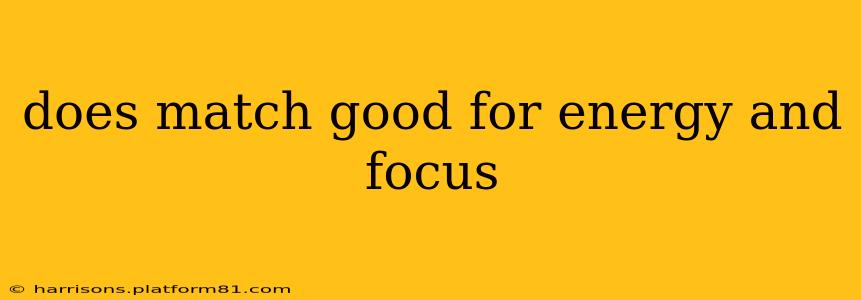Does Matcha Good for Energy and Focus? Unlocking the Power of Matcha for Enhanced Cognitive Function
Matcha, a finely ground powder of specially grown and processed green tea leaves, has gained immense popularity for its purported energy-boosting and focus-enhancing properties. But does the hype live up to the reality? Let's delve into the science and explore whether matcha truly delivers on its promises.
What Makes Matcha Unique?
Unlike traditional green tea where you steep the leaves and discard them, with matcha, you consume the entire leaf. This means you ingest all the beneficial compounds, resulting in a higher concentration of nutrients compared to other teas. This concentrated dose of goodness is key to understanding matcha's effects on energy and focus.
The Energy Boost: More Than Just Caffeine
Matcha does contain caffeine, a stimulant known to increase alertness and energy levels. However, matcha's energizing effect is more nuanced and sustained than a simple caffeine jolt from coffee. This is because it also contains L-theanine, an amino acid that promotes relaxation and reduces stress. The combination of caffeine and L-theanine creates a unique synergy, resulting in a calm, focused energy without the jitters or crash often associated with coffee.
Focus and Cognitive Function: Harnessing the Power of L-theanine
L-theanine plays a crucial role in matcha's cognitive benefits. It promotes alpha brain waves, associated with a state of relaxed alertness. This state is ideal for improved concentration, memory, and cognitive function. Studies have shown that L-theanine can improve attention, reaction time, and working memory.
Beyond Caffeine and L-theanine: A Nutrient Powerhouse
Matcha is rich in various antioxidants, vitamins, and minerals that contribute to overall well-being and may indirectly support energy levels and focus. These include:
- Chlorophyll: A powerful antioxidant that may help detoxify the body.
- Vitamin C: An essential nutrient with antioxidant and immune-boosting properties.
- Vitamin K: Important for blood clotting and bone health.
- Various Minerals: Including magnesium, potassium, and zinc.
How Much Matcha Should I Consume for Optimal Energy and Focus?
The optimal amount of matcha for energy and focus varies depending on individual tolerance and sensitivity to caffeine. Starting with a small amount (1-2 grams) is recommended, especially if you're new to matcha. Gradually increase your intake as needed, observing how your body responds.
What are the Side Effects of Matcha?
While generally safe for consumption, excessive matcha intake can lead to side effects similar to those of caffeine, including:
- Insomnia: Avoid consuming matcha close to bedtime.
- Anxiety: Individuals sensitive to caffeine may experience anxiety or nervousness.
- Upset Stomach: Some people may experience digestive discomfort.
Is Matcha Better Than Coffee for Energy and Focus?
The "better" choice depends on individual preferences and needs. Coffee offers a stronger and faster caffeine kick, while matcha provides a more sustained and balanced energy boost due to the presence of L-theanine. Matcha also offers a wider range of nutrients.
Can Matcha Help with ADHD?
Some individuals with ADHD report that matcha helps improve focus and attention. However, more research is needed to confirm its efficacy as a treatment for ADHD. It's crucial to consult with a healthcare professional before using matcha or any other supplement to manage ADHD.
Does Matcha Have Any Interactions With Medications?
Matcha, like any substance, could potentially interact with certain medications. It's always best to consult your doctor or pharmacist if you have concerns about potential interactions, particularly if you're on medications that are affected by caffeine or other compounds in matcha.
Is Matcha Safe for Pregnant and Breastfeeding Women?
Pregnant and breastfeeding women should exercise caution when consuming matcha due to its caffeine content. It's always best to consult with a healthcare professional before incorporating matcha into your diet during pregnancy or breastfeeding.
In conclusion, matcha can be a valuable addition to your routine for boosting energy and enhancing focus, offering a more balanced and sustained effect than coffee due to the unique synergy of caffeine and L-theanine. However, moderation is key, and individual responses may vary. Always listen to your body and consult a healthcare professional if you have any concerns.
